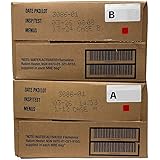Strengthening Community Bonds
Building Trust Among Neighbors
One of the easiest yet most significant benefits of community-based preparedness efforts is the opportunity to build trust among neighbors. I’ve found that when you engage with the people living right next door, you develop a deeper understanding of each other’s strengths and vulnerabilities. This trust is crucial in a crisis when every second counts.
When I got involved in local preparedness programs, I was amazed at how quickly relationships blossomed. We started sharing not just resources but also skills. Someone might have a background in first aid, while another could teach basic survival skills. These interactions create a solid support network that’s invaluable in emergencies.
Moreover, trust isn’t just beneficial during a crisis; it enhances everyday life. Knowing I can count on my neighbors provides a comforting sense of security. The more we prepare together, the more connected we become, turning a group of acquaintances into a supportive community.
Developing Collaborative Skills
Working together on community preparedness initiatives allows us to hone our collaborative skills. In my experience, nothing beats facing challenges as a united front. Whether it’s organizing a neighborhood watch or planning an emergency response, these activities require communication and teamwork.
I vividly remember our first disaster preparedness meeting. The mixture of chaos and camaraderie was entertaining! We shared ideas, planned drills, and designed outreach strategies. I learned to listen to different perspectives and appreciate everyone’s contributions, regardless of their experience level.
These collaborative efforts encourage everyone to pitch in based on their talents. I’ve seen community members take the lead in areas they’re passionate about, whether it’s cooking, organization, or public speaking. The key takeaway here is that we all have something to bring to the table, making our community stronger in the process.
Encouraging Volunteerism
Community-based preparedness isn’t just about making plans; it’s about getting people involved. Engaging in local emergency efforts naturally fosters a spirit of volunteerism; I’ve seen this firsthand in my own neighborhood. It’s inspiring to watch people step outside their comfort zones to help others.
When I took part in a community clean-up day after a storm, people from all walks of life rolled up their sleeves and got to work. Everyone was motivated by a common goal—to support our community and ensure readiness for future challenges. That shared purpose created a synergy that made the hard work enjoyable.
== > What if ... Get a FREE Subscription to PREPARE
Moreover, volunteering not only helps the community but also fosters personal growth. You gain new skills, meet amazing people, and cultivate a sense of fulfillment as you contribute positively to your surroundings. It’s a win-win situation that encourages ongoing participation.
Enhancing Preparedness Knowledge
Sharing Resources and Information
One major advantage of community preparedness initiatives is accessible resources. When you come together with others, you can share information that might not be easily available to everyone. In my early days of involvement, I learned tips and tricks I would never have discovered on my own.
Get Preparedness and Self-Reliance Tips. Subscribe Now!
For instance, seminars and workshops organized by local groups provided beneficial insights into emergency planning, natural disaster response, and first-aid techniques. I’ve attended workshops with everything from professional instructors to local experts willing to share their knowledge. Each session was an eye-opener and helped me feel much better prepared.
This sharing of resources is not just about stockpiling supplies—it’s about building a repository of knowledge that everyone can tap into when needed. The more we share, the better equipped our community becomes to handle any situation!
Boosting Individual Skill Sets
Participating in community preparedness efforts enhances your skills. For example, learning new practical skills like CPR or how to create an emergency plan has been incredibly rewarding. The first time I learned CPR, it felt daunting, but the encouragement from my peers made it achievable.
Beyond first aid, I’ve learned about food preservation, basic repairs, and even emotional support skills. Each new ability adds to my personal toolkit and helps me become a more active community member. When disaster strikes, it’s good to know you can contribute in various ways!
Furthermore, these opportunities come without fear of judgment. The supportive environment in community groups fosters a shared learning experience. We can make mistakes together, learn, and grow, ultimately turning each challenge into a stepping stone for improvement.
Improving Overall Safety and Security
Ultimately, community-based preparedness efforts culminate in increased safety and security. As a community, we can collectively address potential risks and challenges we face. My involvement has shown me that together we’re much more capable of managing emergencies than when we go it alone.
As we engage in safety drills and workshops, we identify vulnerabilities specific to our area. Being proactive about these challenges ensures that we can act swiftly should the unthinkable happen. It gives everyone peace of mind knowing there are plans in place and people ready to respond.
Community safety is a shared responsibility. With everyone on board, we help each other stay informed, stay safe, and remain vigilant. It’s comforting to know that in times of crisis, there’s a network of people ready to jump into action, and that we can all rely on each other.
Conclusion
So there you have it! Community-based preparedness efforts offer a wealth of benefits that reach far beyond just emergency response. They foster trust, build collaborative skills, and enhance our knowledge while improving overall safety. If you haven’t yet explored this avenue, I wholeheartedly encourage you to get involved. You won’t just be preparing for the worst, but you’ll also enrich your community and your own life in the process.
FAQ
- What are community-based preparedness efforts?
- Community-based preparedness efforts are initiatives that bring people together to plan, train, and share resources for emergencies or disasters.
- How can I get involved in my community’s preparedness efforts?
- Join local groups, attend meetings, volunteer for roles, or simply reach out to neighbors to discuss preparing together.
- What skills can I learn from community preparedness efforts?
- You can learn a variety of skills, including first aid, emergency planning, risk assessment, and even food preservation techniques.
- Why is trust important in community preparedness?
- Trust fosters collaboration and a sense of safety; knowing you can rely on your neighbors in times of crisis is crucial.
- How do community preparedness efforts improve overall safety?
- Together, communities can collectively identify and address vulnerabilities, ensuring everyone is informed and ready to act in emergencies.






